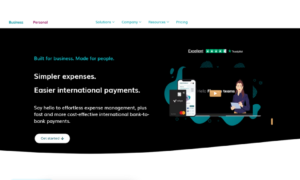Ramadan is the holiest month in the Islamic calendar, observed by millions worldwide through fasting from dawn to sunset. It is a time for reflection, prayer, and community. Many businesses in Muslim-majority countries operate on adjusted schedules, making it crucial for business travelers to plan ahead to ensure seamless interactions and avoid disruptions.
Business travel during Ramadan requires a strategic approach to accommodate cultural sensitivities, fasting schedules, and operational changes in various regions. Whether you are a frequent traveler or planning a business trip for the first time during the holy month, understanding how to navigate these challenges can enhance your experience and foster successful engagements. Here’s a comprehensive guide to making the most of your business travel during Ramadan.
Plan Meetings and Schedules Wisely
Since working hours are often reduced during Ramadan, many businesses in the Middle East, North Africa, and Southeast Asia operate on modified schedules. Here’s how you can adapt:
- Check Local Business Hours: Many offices open later and close earlier, with a mid-day break. Ensure that you confirm business hours in advance.
- Confirm Individual Working Hours: Companies operating in Muslim-majority regions may allow adjusted working hours for some—if not all—of their employees. Even if the company is operating elsewhere, Muslim employees may request adjusted timings. Make sure to check ahead for individual availability.
- Avoid Scheduling Meetings at Iftar Time: Iftar, the meal that breaks the fast, is a significant moment of the day. Scheduling meetings around this time is generally not advisable.
- Consider Virtual Meetings: If in-person meetings are challenging due to adjusted schedules, opt for virtual meetings at convenient times.
Travel Logistics and Accommodation Considerations
Traveling during Ramadan requires additional planning to ensure a smooth experience:
- Book Flights and Hotels Early: Ramadan and Eid-al-Fitr, which follows the holy month, see high travel demand. Early bookings help secure preferred accommodations and flight options.
- Secure Potential Savings: Ramadan in the Middle East and Southeast Asia is often a retail opportunity. You’ll see travel and hospitality brands running Ramadan and Eid campaigns that entail generous discounts on events, airfares, and room rates. Maximize your business travel savings by keeping an eye out for promos, such as Qatar Airways promo code.
- Check Food Availability: While many hotels cater to fasting guests with pre-dawn and Iftar meal options, daytime food availability may be limited in certain regions.
- Be Prepared for Transportation Delays: Traffic surges before Iftar as people rush home to break their fast, so plan your commute accordingly.
Respect Local Customs and Etiquette
Cultural sensitivity is key when traveling during Ramadan. Here are some important etiquette tips:
- Avoid Eating, Drinking, or Smoking in Public: In many Muslim-majority countries, consuming food and beverages in public before Iftar is discouraged or even legally restricted.
- Dress Modestly: Many countries enforce a more conservative dress code during Ramadan, so opt for business attire that aligns with cultural expectations.
- Be Mindful of Energy Levels: Many professionals who are fasting may experience lower energy levels in the afternoon. Plan important discussions earlier in the day when possible.
Maximizing Productivity During Ramadan Business Travel
Despite the unique challenges of traveling during Ramadan, you can maintain productivity by:
- Adjusting Your Work Hours: If possible, align your schedule with local business hours to maximize engagement.
- Utilizing Co-Working Spaces: If your hotel does not offer a conducive work environment, consider booking a co-working space.
- Practicing Patience: Business processes may be slower, so allow extra time for responses and decisions.
Leverage Business Networking Opportunities
While business activities may slow down during Ramadan, networking opportunities thrive, especially during Iftar gatherings and Suhoor (pre-dawn meals). Consider:
Attending Iftar Events: Many businesses and organizations host Iftar dinners, offering a great platform for networking and building relationships.
Scheduling Suhoor Meetings: Some professionals prefer to meet late at night after Iftar, making Suhoor gatherings a great time for informal discussions.





























